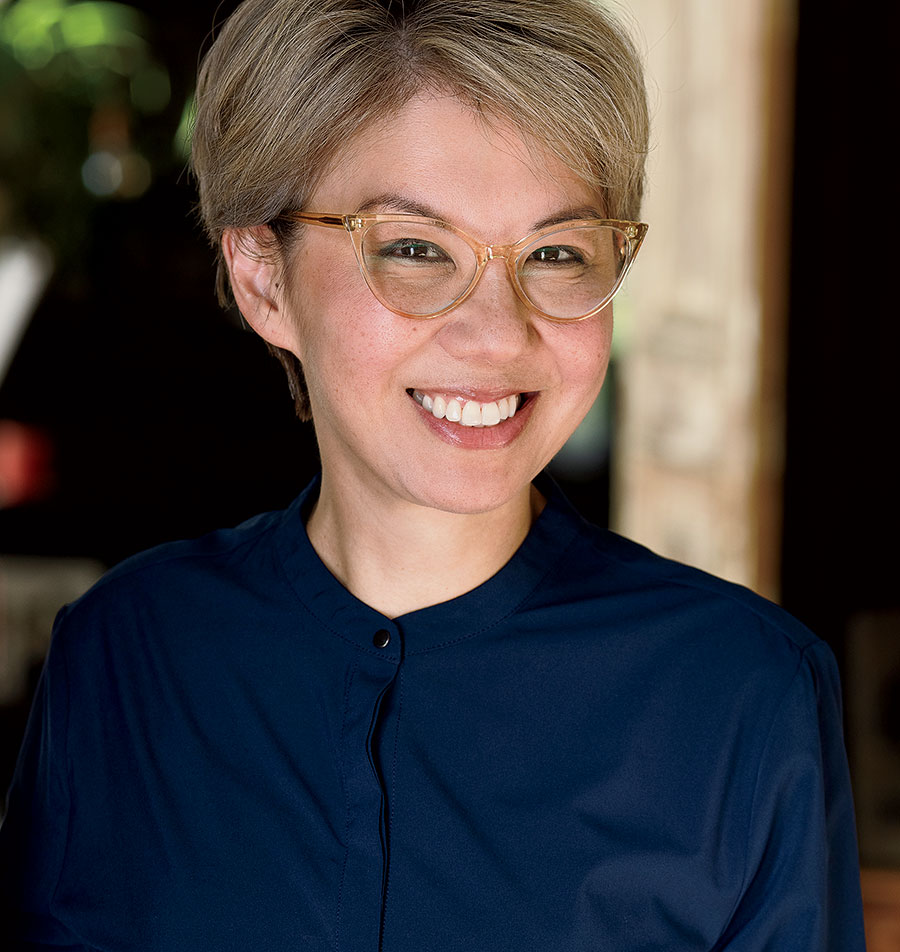Every time I walk out there, the world has changed.” That’s playwright and actor Heidi Schreck in a voice-over intro to a filmed version of What the Constitution Means to Me, her inventive theatrical exploration of how the country’s founding document and the courts have, and mostly haven’t, protected the rights of women and other marginalized groups.
At the time that the Broadway production was shot for Amazon Prime Video in 2019, she notes, she had been performing versions of her near-solo show for a decade: “during presidential elections, Supreme Court hearings, marches, and protests.” Now, as TimeLine Theatre Company prepares to mount the first Chicago-based production, May 10 to July 2, the world has shifted again, in a way that couldn’t be more central to the play.
In Schreck’s script as it was frozen just a few years ago, the character Heidi lives in an America where Roe v. Wade is the law of the land; her own decision to have an abortion at 21 is one of the story’s tent poles. TimeLine, among the first regional theaters to license the Tony- and Pulitzer-nominated work, has to figure out what Constitution means in a post-Roe world. “Every discussion I’ve had with anyone about this production, we’re all talking about that,” says Chicago actor Beth Lacke, who will be filling Schreck’s shoes. “After Roe’s been overturned, how does this affect the structure of the play, the emotionality of the play?”
Constitution was a late addition to TimeLine’s slate, but the company — whose mission revolves around plays rooted in history that wrestle with political and social issues — leaped to secure the rights when they became available. TimeLine turned to local director Helen Young, who helmed The Chinese Lady for the company last spring. “I read it and was immediately intrigued. Then I saw the Prime Video version and cried and was just thrilled.”

The play is unconventionally structured. Heidi speaks to the audience directly, recounting how she paid for college with scholarships earned by competing in American Legion speech contests. Though her prizewinning oration in response to the titular prompt is long since lost, Heidi tells us she wants to re-create what she might have said at 15, complete with a legionnaire keeping time (played here by Lookingglass Theatre ensemble member Raymond Fox). But even as Heidi tries to conjure her teenage self, the grown-up version keeps breaking through with complicating facts and anecdotes: personal stories of her own abortion and her family’s history of domestic violence, cogent legal analysis of the Ninth and 14th Amendments, and a deep dive into a particularly infuriating Supreme Court case.
If this sounds like a lecture, fear not: Schreck’s treatment is as funny as it is furious. But Lacke knows that Heidi’s abortion story will hit differently these days. “There’s now a touch of privilege to the piece,” she says. In the play, Heidi acknowledges the advantages she has as a white woman over Black and Indigenous women, trans people, and others who might feel less safe going to the police about an abusive situation. Look for that theme to carry into abortion choices. “Tell everyone to pack a flask,” Lacke jokes.
But as Young notes, the play won’t let us wallow. “It does need to have hope,” she says. Schreck provides that in the form of an even more unconventional ending, in which Heidi faces off against a teenage debater (played alternately by high schoolers Sophie Ackerman and Makalah Simpson). The question: Should we keep trying to improve our old, imperfect Constitution, or scrap it and start fresh?
Ultimately, the audience is asked to decide. “I hope that it inspires people to recognize the power they have, through elections, through running for election — that this is a living, breathing document,” Lacke says. Adds Young: “We look back on the Constitution and think it was all these really smart people designing things. But no, it was fighting. It was gritty. It was dirty. And it was won sentence by sentence. It’s the same thing now.”




